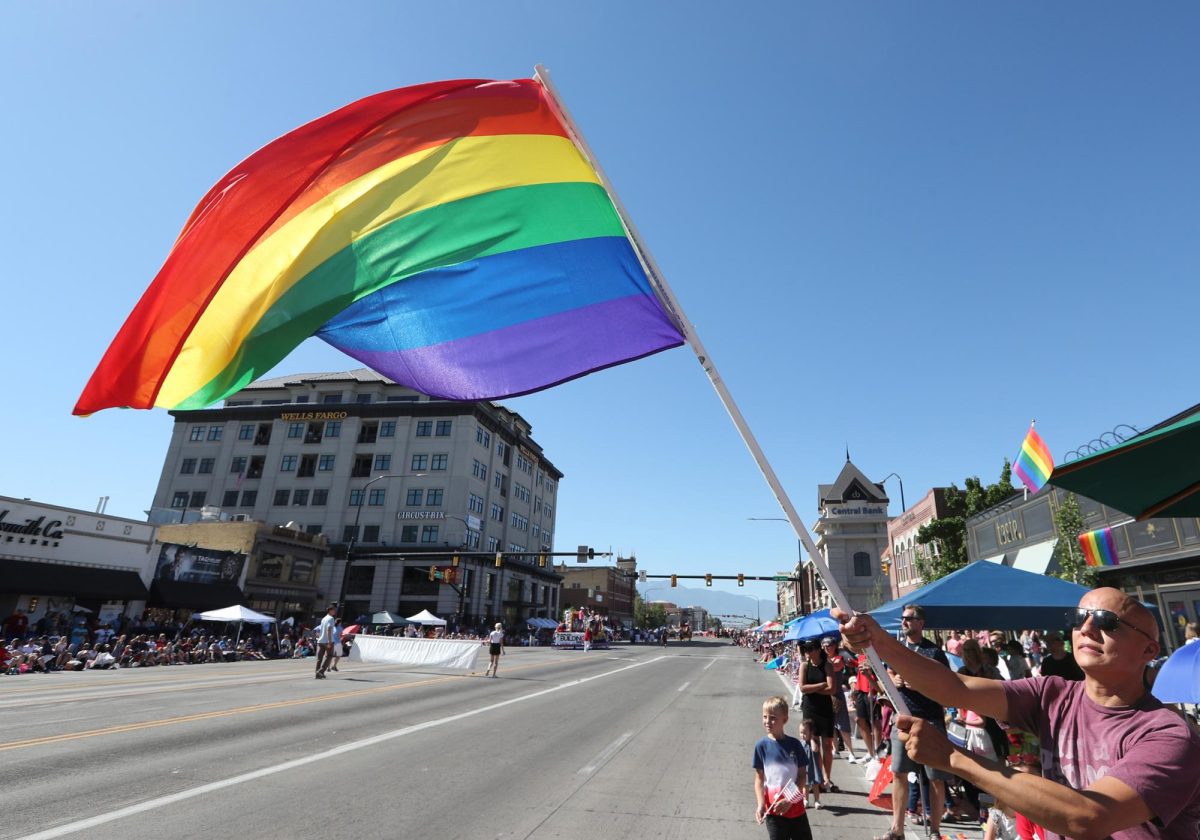We’ve come a long way since the first brick was thrown at Stonewall.
Fifty-one years ago in Manhattan, New York, at the end of June, a riot broke out in Greenwich Village. In the early morning hours of June 28, 1969, the New York City police raided a gay bar called Stonewall Inn. This raid led to six days of protests, some turning violent. The Stonewall riots were the catalyst to today’s LGBTQ movements in the United States and around the world.

In the years leading up to 1969, queer people saw laws passed that restricted their rights. Because of these restrictions, many LGBTQ people found solace and refuge in gay bars. Here, they felt they could be themselves.
Even these spaces were subject to unfair restrictions and laws, though. The New York Liquor Authority shut down establishments that served alcohol to “known or suspected LGBT individuals,” according to History.com. The gathering of LGBTQ people was considered “disorderly” by the New York Liquor Authority, but by 1966 these restrictive regulations were overturned.
Despite the small changes being made by activists, it was still illegal to perform “homosexual acts” in public, such as two individuals of the same presenting gender holding hands or kissing. During this time, police raided gay bars specifically looking for anyone taking part in what they would consider homosexual behavior under the guise of looking for the illegal sale of alcohol. People were also arrested in these raids if they were not wearing at least three pieces of clothing that were appropriate for their gender, according to an article by Refinery29.
Gay bars often didn’t have liquor licenses because the New York State Liquor Authority did not permit establishments who served queer patrons licenses, but the police were often paid off by the mafia for advance warnings of raids or turning a blind eye, according to History.com. Despite the hush funds, the police would often do surprise raids every once in a while, as was the case with the Stonewall Inn early in the morning of June 28, 1969.
As police stormed into the Stonewall Inn on that fateful morning, they found a significant amount of bootlegged alcohol and many queer people violating the state’s restrictions. The police made 13 arrests, which included employees and people who were not complying with the gender-appropriate clothing laws.
Patrons of this gay bar didn’t disperse as the police were telling them to. Instead, they stood in the street outside the bar and watched as their friends were being arrested. The patrons were angry with the fact they were discriminated against and harassed by police officers once again. They were angry, and rightfully so. This anger transferred into their actions as they began to become more agitated. According to History.com, a police officer hit a lesbian woman over the head as he was trying to shove her into a police car. She shouted for the crowd to do something, to take action.

The angry crowd of patrons began yelling and throwing things they found on the ground at officers in an attempt to get them to stop. In minutes, a riot was well underway.
Police officers and those they had arrested barricaded themselves inside in an attempt to get away from the violence. The riots escalated as the crowd set the Stonewall Inn on fire; the fire department was called and was able to put out the fire and disperse the crowd.
The initial riots on June 28, 1969, led to six nights of protest and riots across the city. The Stonewall rebellion was not the beginning of the LGBTQ movement, but it was the catalyst of much bigger change that would come in the following decades.
These riots inspired many to take action and stand up for who they were and the things they believed in. Many prominent figures in the LGBTQ community today took part in the Stonewall riots five decades ago, one of the most notable being Marsha P. Johnson.
In June of 1970, a year after the Stonewall riots, many gathered along Christopher Street where the Stonewall Inn was located and marched in remembrance of what had taken place just a year before. Today, 51 years later, the month of June is dedicated to pride. Though our marches look more like parades, we are still remembering what happened early in the morning of June 28, 1969, and the world-shaking events that took place.
Even now, the rights and safety of those in the LGBTQ community are still being threatened, and pride reminds us to stop and celebrate our individuality.




















